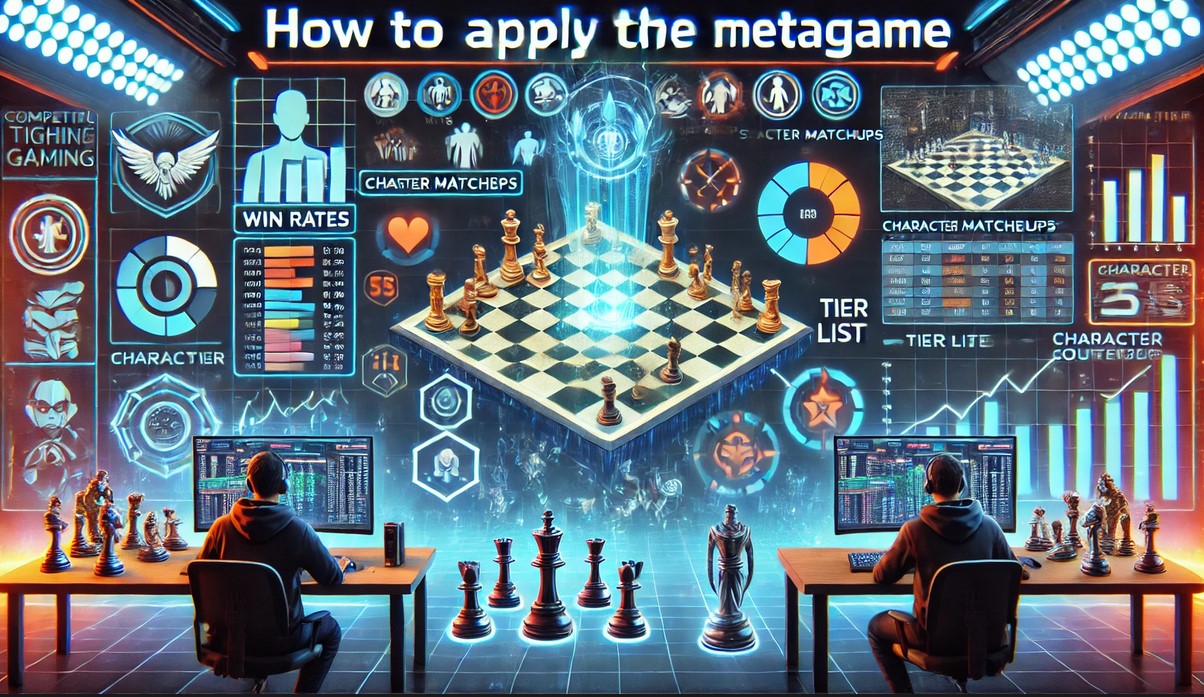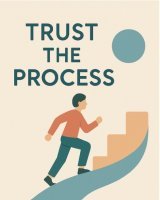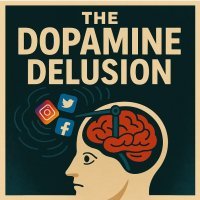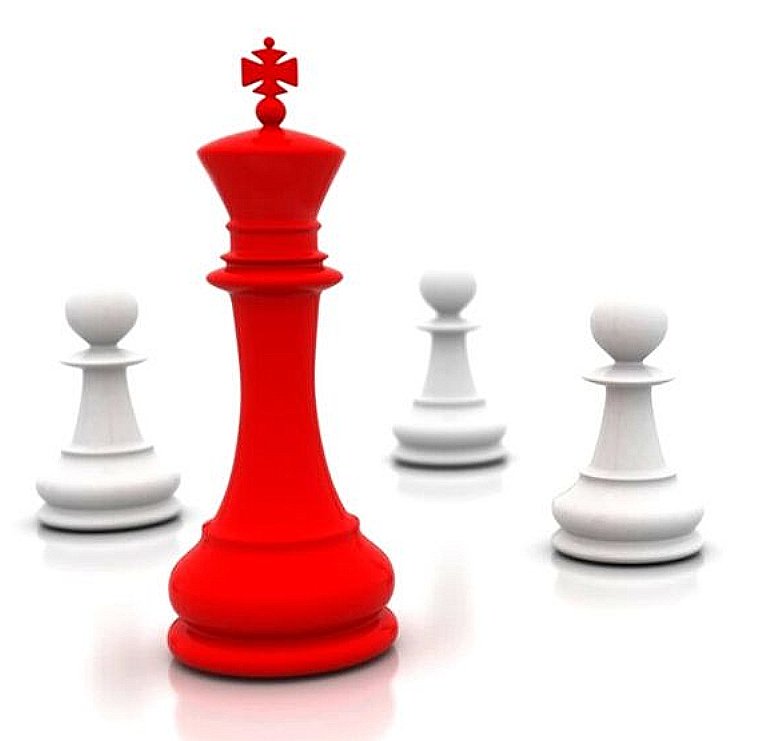The Metagame Approach to Second Order Thinking
5 Guiding Principles
How To Position Yourself For Survival & Success In A Complex Environment

Introducing The Metagame Approach to Second Order Thinking
The metagame approach to second order thinking combines two sets of thinking skills that address the unpredictability of modern life within a complex system.
Much of the anxiety and frustration that we experience in our daily lives is the result of our approaching life with the wrong mindset.
The purpose of this article is to offer some guiding principles that will position you to survive and thrive in this complex environment.
The Metagame
The metagame is "the game beyond the game", it involves:
- Understanding the bigger picture
- Seeing what others don't see
- Positioning yourself for survival and success in a complex environment
We live in a world of vast complexity. It is impossible to comprehend all the moving parts, and even if we could, we can't control them.
Life is a complex system and that means we are navigating a world where multiple interdependent factors interact in often unpredictable ways.
Traditional thinking is not enough, dealing with complexity requires a more intuitive and collaborative approach.
Life in a complex system is full of random events that are beyond your control, and the one thing you can control is how you choose to respond to these events.
The quality of your response is driven by the quality of your thinking.
Applying this approach to second-order thinking means looking at decisions not just for their direct consequences but also at the context in which they occur.
For example, in a complex system:
- Cause and effect is often non linear - which means that a small change in one part of the system can have a disproportionately large effect elsewhere.
- Outcomes emerge from interactions of system components - these outcomes cannot be predicted by looking at the components in isolation, and these outcomes exist at a higher level than the individual components, such as flocking behavior in birds or traffic jams in road systems.
Second Order Thinking
Second-order thinking is a mental model that encourages looking beyond
the obvious immediate consequences to avoid long-term and unintended consequences.
Most of the time we use first-order thinking. This is usually quick and easy and addresses the immediately presenting symptoms and doesn't consider consequences.
Second order thinking is deliberate thinking that attempts to take account of interactions and time, as it considers potential consequences of a decision or action.
It is about attempting to see things that other people don't or can't see.
It is time-consuming hard work - much harder than first order thinking - but it can lead to extraordinary performance.
In practise, second-order thinking:
- Questions everything - challenge all assumptions.
- Involves others - get alternative perspectives.
- Thinks long term - consider impacts at different time points.
- Asks the key question - "And then what..?"
Complex Systems
Life is more than complicated, it is complex.
To be clear, a complicated system can be seen as the sum of the parts whereas a complex system is greater than the sum of the parts.
Complicated systems fall within classic Newtonian thinking - the mechanical universe which is all about: Predictability, Reductionism, Determinism, Cause and Effect, Equilibrium and Centralised Top-Down Control
With a complicated system if you understand the part then you can understand the system.
Whereas, complex systems involves a holistic approach which focuses on the dynamics of the interactions between the multiple component parts of the system and is all about:
- Emergent Behavior
- Nonlinear Interactions
- Adaptation and Learning
- Unpredictability and Uncertainty of Outcome
- Distributed Control.
With a complex system if you understand the dynamics of the parts you can gain better understanding of the system.
Examples of complex systems include: ecosystems, financial markets, the human brain, and social networks.
We are all working with complex systems, and we do so every day. The biggest one is life itself.
How To Apply The Metagame Approach to Second Order Thinking

Solid -> fluid
The metagame approach to second order thinking recognises that it is very effective - as far at it goes.
But, and this is very big but, all mental models are based on classic Newtonian thinking which sees a mechanical universe that is solid, complicated but predictable. The modern world we live in is fluid, unpredictable and works according to a completely different set of rules based on the innumerable interactions of the multiple components within it - in other words it is a complex system.
Peter Senge described systems thinking as a discipline for seeing wholes - a framework for seeing interrelationships rather than things, for seeing "patterns of change" rather than "static snapshots".
Necessary but not sufficient
The traditional Newtonian thinking still works, the mental models that we know and love so well are still relevant and applicable and they are necessary but they are not sufficient.
We need to still work these mental models, but we need to expand our thinking to incorporate new ideas and new approaches.
The old rules still apply but they are subsumed within, and transcended by, the new rules.
Second Order Thinking is all about looking at cause and effect and we do this by asking endless questions based around "And then what?"
Our aim can be summarised as going beyond the obvious and seeking to avoid unintended consequences.We do this in a linear manner always looking at how "this" moves to "that" - always leading to logical and predictable consequences.
Unpredictabilty
But with the metagame approach to second order thinking the environment changes from linear cause and effect leading to predictable consequences, to non linear unpredictability and a whole new concept - emergence.
Emergence
Complex systems exhibit emergent behavior, where the whole system displays characteristics that cannot be explained by the individual parts alone.
These behaviors emerge from the interactions of components, often in unpredictable ways. For example a colony of ants (complex system) exhibits emergent behaviors like foraging patterns or nest building, none of which can be understood by examining a single ant in isolation.
It is also important to understand that you can't understand the whole system by looking at the behavior of an individual ant.
This also applies to human behaviour. The attitudes and behaviour of the individual are not representative of the whole group.
The impact of living within a complex system is that traditional second order thinking is not enough to cope with unpredictability and emergence.
We need new tools. We have to make the shift from solid thinking to fluid thinking.
Here is a "Summary Of Key Differences" between solid, Newtonian thinking and the fluid thinking of complex systems.
5 Guiding Principles To Apply The Metagame Approach to Second Order Thinking

[1] The Principle Of Dynamics
This focuses on what is happening in the background - all the moving parts that deliver the outcome that you observe - and how they interact over time and how they are connected. It
applies to the: Key Question: "What's going on in the background, what's driving this outcome" Resource: How to Get What You Value by Changing What You Measure [2] The Principle Of The Intangible This focuses on the intangible things that will influence the outcome and are often critical to it. We tend to measure the tangible things we can see and overlook the critical intangibles that are not so easy to see or measure. Intangible are measured by the value they add. The measurement is a subjective, qualitative measurement of process. Key Question: "What are the unseen factors that are influencing this outcome?" Resource: How To Benefit From The Unseen Margins - 5 Key Tips For Success [3] The Principle Of Influence We live in an interconnected world and knowing how to influence
without exercising control is an increasingly important communication skill. Control leads through position. Influence builds out of relationship. Here is a personal anecdote about how to get what you value when you
come to realize that influence exercised over the long term is far more important
than control now. Key Question: "Where is the 'win-win'? How do I get the outcome I really want by giving them what they really want?" Resource: How To Influence Without Authority - 6 Key Tips [4]
The Principle Of Distributed Control Complex systems involve decentralized or distributed control. The
system doesn’t have a single controlling entity; instead, behaviour
arises from the interactions and decisions of many independent agents -
allowing multiple factors to influence and shape outcomes. An obvious example is the internet which is decentralized, with countless
independent nodes interacting with each other without a single point of
control. For those in organisational leadership and
management operating in a complex systems environment control is limited. The effective approach is to push control down to the frontlines and to support this with a clear vision, appropriate competency training and guiding parameters as to how they will act within defined levels of autonomy. For those not in positions of management and leadership this builds on principle three above: "influence without control", and is about identifying, engaging with, and seeking influence with, the informal human networks and especially the natural leaders and key influencers within those networks. Key Questions: [1] For Managers and Leaders "What do I need to do to empower the troops in the frontline to exercise initiative and take action to get the outcome I want?" [2] For Non Managers & Non Leaders "Who are the natural leaders and key influencers
within the informal networks that I need to engage with, and influence, to get the outcome I want?" Resource: The Power Of Working With The Front Line - Influence Without Authority [5]
The Principle Of Antifragility Antifragility is a term coined by Nassim Taleb to represent things that benefit from
disorder. Antifragility is the quality of something that gets
better, or thrives, in the presence of disorder. One of the keys to antifragility is slack - sacrifice functional capacity and accept less efficiency in the short term for long-term gain and survival. See here for examples of: how to apply and live with antifragility. Key Question: "How can I build in slack to prepare for the unexpected happening, and to survive and thrive, what are my options and where are my back ups?" Resource:
New Mindsets, Practices and Skills To Support These 5 Guiding Principles
Operating within complex systems—whether in business, nature, technology, or society—requires specific mindsets, practices, and skills to navigate uncertainty, interconnectedness, and constant change effectively.
Further Reading:
The Metagame Approach To Life - How To Achieve Your Biggest Objectives
Second Order Thinking - And Then What?
Understanding Complex Systems Thinking - It's Not Complicated
How to Get What You Value by Changing What You Measure
How To Benefit From The Unseen Margins - 5 Key Tips For Success
Return from: "The Metagame Approach To Second Order Thinking" to: Walking The Talk Or Mental Models
Next Article:
Outcome Over Optics - Long Game Outcomes Over Short-Term Ego Gains
LATEST ARTICLES
The Battle For Your Mind - How To Win Inner Freedom In A Digital Age Of Distraction
 From External Events to Inner Events. We often think of “events” as things that happen out there: the traffic jam, the rude comment, the delayed email reply. But what truly shapes our experience is wh…
From External Events to Inner Events. We often think of “events” as things that happen out there: the traffic jam, the rude comment, the delayed email reply. But what truly shapes our experience is wh…How to See Your Thoughts Without Becoming the Story
 A Practical Guide to Thought-Awareness. You can spend your life inside the stories of your mind without ever learning how to see your thoughts clearly and objectively. Most of the stuff we tell oursel…
A Practical Guide to Thought-Awareness. You can spend your life inside the stories of your mind without ever learning how to see your thoughts clearly and objectively. Most of the stuff we tell oursel…The Collison Decision Matrix - A Simple Framework for Better Choices
 The Collison Decision Matrix Is A Practical Everyday Thinking Tool. Most of us spend a surprising amount of time worrying about decisions. From small ones such as what to wear, what to eat, what to te…
The Collison Decision Matrix Is A Practical Everyday Thinking Tool. Most of us spend a surprising amount of time worrying about decisions. From small ones such as what to wear, what to eat, what to te…The Power Of Asking The Right Question
 The Power Of Asking The Right Question Lies In The Quest For Insight. To experience the power of asking the right question you must develop the practice of asking questions. The best way to improve th…
The Power Of Asking The Right Question Lies In The Quest For Insight. To experience the power of asking the right question you must develop the practice of asking questions. The best way to improve th…Site Pathways
 Here is a site pathway to help new readers of Zen-Tools navigate the material on this site. Each pathway is based around one of the many key themes covered on this site and contain a 150 word introduc…
Here is a site pathway to help new readers of Zen-Tools navigate the material on this site. Each pathway is based around one of the many key themes covered on this site and contain a 150 word introduc…How To Live With Contradiction - Beyond Thought Let Stillness Speak
 A major impact on so many peoples' lives is the situational contradiction of unfilled realistic expectations. So where does all this leave us? Well here we are, with mental equipment that is more lim…
A major impact on so many peoples' lives is the situational contradiction of unfilled realistic expectations. So where does all this leave us? Well here we are, with mental equipment that is more lim…How To Trust The Process Of Mindfulness - Right Now
 In mindfulness, the process isn’t some distant goal — it's what is happening right now. When we talk about how to trust the process of mindfulness the credibility of the process is heavily dependent…
In mindfulness, the process isn’t some distant goal — it's what is happening right now. When we talk about how to trust the process of mindfulness the credibility of the process is heavily dependent…Inner Mastery For Outer Impact - Mental Clarity For Effective Action
 Insights only matter if they translate into consistent action. In a world crowded with quick fixes and motivational soundbites, the theme “Inner Mastery for Outer Impact” calls us to something more e…
Insights only matter if they translate into consistent action. In a world crowded with quick fixes and motivational soundbites, the theme “Inner Mastery for Outer Impact” calls us to something more e…The Wise Advocate - Helping You Achieve The Very Best Outcome
 The focus of your attention in critical moments of choice either builds or restricts your capacity for achieving the best outcome. When we talk of 'The Wise Advocate' its easy to think of the consigl…
The focus of your attention in critical moments of choice either builds or restricts your capacity for achieving the best outcome. When we talk of 'The Wise Advocate' its easy to think of the consigl…Trust The Process - Beyond The Cliche
 The phrase "trust the process" has become a cliche, the woo-woo mantra of the "self help" industry. Those three little words feel like they ought to mean something useful but hidden behind them are a…
The phrase "trust the process" has become a cliche, the woo-woo mantra of the "self help" industry. Those three little words feel like they ought to mean something useful but hidden behind them are a…The Dopamine Delusion - Why Anticipation Beats Achievement
 The thrill we feel is not in the having, but in the wanting. The more we have, the more we want. The more things we acquire and the easier things get for us, the more discontent we feel. The more spo…
The thrill we feel is not in the having, but in the wanting. The more we have, the more we want. The more things we acquire and the easier things get for us, the more discontent we feel. The more spo…The Power Of Silence Is Experienced In Your Use Of Language
 Practise the "Beneficial Neurological Delay" for optimal comprehension. The power of silence is experienced in your use of language, specifically: - How you formulate the words you use to think and in…
Practise the "Beneficial Neurological Delay" for optimal comprehension. The power of silence is experienced in your use of language, specifically: - How you formulate the words you use to think and in…


